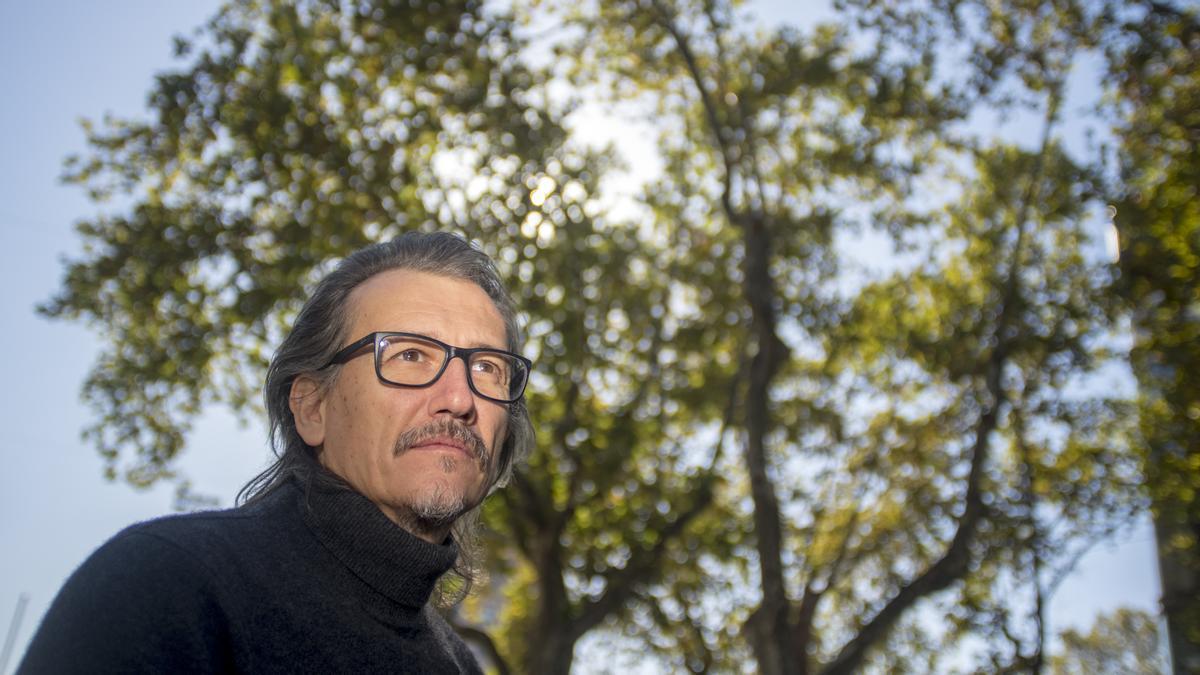Don’t Be Picky and Forget the Chemistry: A Guide to Success on Tinder, According to the App’s Scientific Advisor | technology


Christmas 2005 was two days away, and “in New York absolutely nothing happened two days before Christmas,” says anthropologist and biologist Helen Fisher, 77. But they called her from the Match group and called her to an urgent meeting: “I was in contact with the boss and they wanted to know why someone fell in love with one person and not another,” she says. At that time I replied: I have no idea. But Fisher began to think.
It was clear that in falling in love there is a part of prestige, beliefs and education. But he thought there must also be something genetic. This is how he devised a test to distinguish four types of personality: explorer, manager, negotiator and builder. Each is associated with a neurotransmitter or hormone. “It is the only one in the world that is based on biology and validated by two brain experiments,” he confirmed to EL PAÍS by video conference from New York. Millions of people in the world have done it, and Match Method, owner of dating apps Tinder, Hinge, OkCupid, and Meetic, has given it a science makeover. Fischer insists that a retired Princeton geneticist told him at a recent dinner that his test was “the only test that works”.
Fisher has been serving as a scientific advisor to Match since then, although she is not familiar with the apps and their algorithms. You don’t know how the app chooses which profiles to show to its users. But since 2010, she has used her data for an annual survey called singles in the united states With responses of 5,000 people. She has also worked in the field long enough to be called “one of the most cited experts on love” or even “the world’s most cited scientist on the biology and chemistry of love.” Although the search “Helen Fisher you see” Giving 28 million results on Google, Fisher “has no idea” where these claims come from: “Although when journalists call to talk about love, they have many psychologists, I’m the only neuroanthropologist they have,” she adds.
His experience and research is sufficient to give some context for the (relative) importance of the applications. Believe that they hardly change in love. In fact, you have at least three basic ideas about the true extent of these applications. First: “It’s just a new way of doing something our brains have always been doing: a million years ago we found ourselves in a hole in the desert, and now it’s on the Internet.” Second: “All these psychologists who say apps are going to make dating so different are silly; I don’t understand how people are afraid of new technologies.” And the third: “They should not be called dating apps but presentation apps” to downplay their importance.
However, Fisher does reveal some tricks to putting it to better use that go beyond just putting up some decent photos.
1. Don’t Overeat: Meet five to nine people
“A lot of people tell me, ‘I go on 30 dates a month and can’t find anyone,'” Fisher says. “Well, that’s why you haven’t: You’re drowning in dating.” Our brains aren’t designed to choose between five to nine options, says Fisher, because we have so many to choose from and we don’t take any for granted.
“And you have to meet them in person. It’s not worth it to just chat or email or even have a phone conversation. The human brain is designed to monitor the whole body: the background, the smile, the hesitation,” he explains.
2. Then close the app for a while
After seeing five, six, or seven people, tap to quit the app. Look no further. “If you really want to get to know someone, go off the site and get to know at least one of those people better, because psychological data shows that the more you know someone, the more you like them,” says Fisher.
“You might meet people who clearly aren’t for you, because they’re over 40 or because they’re too old or too young, or they do something you don’t find respectful. But after you’ve met nine people who fit your spectrum, exit the app, don’t even stand by and watch, ditch of it,” says Fisher.
3. Don’t be picky and learn to say yes
You already have a reasonable group of people that you might want to see more of. Now it’s more difficult: you have to learn to say yes. “People today are very picky. Think of reasons to say yes instead of no. We’re not ashes for free. There’s a biological reason,” Fisher says. “There’s a huge area of the brain that I’ve studied that’s associated with what we call Negative bias. We remember negatives and for millions of years they were adaptive. If you forget who your enemies are, you may die.”
But now you have to give more chances, or at least have a little bit more of it: “You go into these apps and you have a little bit of info on other profiles. And you say, ‘Oh, he likes cats,’ ‘He loves dogs,’ or “He loves golf and I love tennis,” he says, “he goes to his grandmother’s house every Sunday night and I don’t want to. And then you say no,” Fisher explains.
Not that you always have to say yes, of course. But it’s a better rule, for Fisher, than other, more outlandish rules: “Most people look at love at first sight or if we have chemistry. Forget that! Keep seeing someone who’s charming and funny.”
Fisher gives examples from his own life. He got married last year. You have to keep in mind that Fisher is the one who says things like this when he’s flirting: “I study love. When you start to fall in love, you contribute to the brain’s association circuitry. Are you willing to take that risk?” In 2015, her then-fiancé said yes.
Obviously, the lovers have taken their test and fit: they’re explorers. But there are things that make him more nervous. “We were going to dinner in the Bronx. I wanted to cross a flower bed and he told me I couldn’t step on the grass. And I: ‘There’s no grass, there hasn’t been any in 25 years, it’s just dirt.'” Fisher recalls. Let’s not step on the grass.”
From this anecdote, Fisher draws an entire theory: “In the United States, we are steeped in psychology. It’s all our childhood’s fault, you’re a victim, when in fact 50% of the differences are genetic. He didn’t want to walk on the grass because he wanted to follow the rules.” “I’m not. But you have to learn. He’s who he is, and when you realize that, you don’t blame anyone and take advantage of him. Because of his way of being, it’s also possible that he’ll be loyal to me. It’s a very productive way to get along.”
4. Don’t worry too much; It is what it is today and courtship has changed
40% of first dates today come from the Internet, Fisher figures. The bad press on apps is almost over, thanks in part to the work of scientists like them. “At first the internet was for losers. Then we started to feel it’s good, it’s good, it’s just not for me. And now in the US we’ve developed to a good level, I’d try it too,” says Fisher. “If it’s normal even in universities, “.
Mind and love have not changed. But flirting yes: a Likes in story From Instagram, a quick message from WhatsApp, the perfect emoji, a song shared on Spotify. Before it was the same, but different: “I recently read a Dickens novel, and they sent small notes every day, there must have been messengers non-stop in London in 1800.”
In addition to the everyday way of courting, Fisher also believes that something deeper and less technological has changed in our time: “What is really new is the entry of women into the labor market. The growth of the family by two orders of magnitude causes differences when courting, but that does not change love itself.”
The growth in video dating may have something to do with these changes. “This is how candidates are evaluated and then they have fewer first dates and it’s more comfortable,” says Fisher. “During a video date, sex is out of reach, and they don’t have to contend with dinner costs. It turns out that people in those video chats say they have more meaningful conversations, more transparency, more honesty, and more discovery. They’re interested in settling down,” he adds. They care more about money than looks.
5. People are looking for less sex than you think
But what about everyone who is looking for sex? Fisher is sure that the youngest (“of childbearing age”) have sex less often than at other times. But he doesn’t have a definitive answer about whether the apps allow other generations to have more sex. “Although I think so,” he says.
In terms of sex, Fisher thought a lot about the concept of “friend with benefits”, which is used by younger people: “It’s a very descriptive term, they’re very analytical [los jóvenes]. 34% of singles have had sex with someone before their first serious date. Older people will think it’s crazy, but I think it’s a sexual encounter.” It’s another alleged way to get to know someone better.
Perhaps these “interviews” mean they have fewer one-night stands, which is something Fisher also has fun facts about. Men are three times more likely to be diagnosed with it roll Hoping it will turn into a relationship. Nobody believes me. I have been saying for 40 years that men fall in love more often, faster and faster. They want to introduce the other person to friends and family sooner. They want to move in before the women,” she explains.
6. People who meet on apps get fewer divorces
In his annual studies, Fisher wanted to verify something he saw in a scholarly article from the University of Chicago: People who meet with divorce online have fewer couples who form in real life. What difference can there be between the Internet and a bar, airport or church?
“Because we had 60,000 people who responded, it was very easy to analyze a sample and compare couples who hooked up online with those who didn’t, and it turns out that people who hooked up from apps were more likely to have a job, higher education and looking for a long-term commitment.” , he says.
You can follow country technology in Facebook s Twitter Or sign up here to receive The weekly newsletter.




